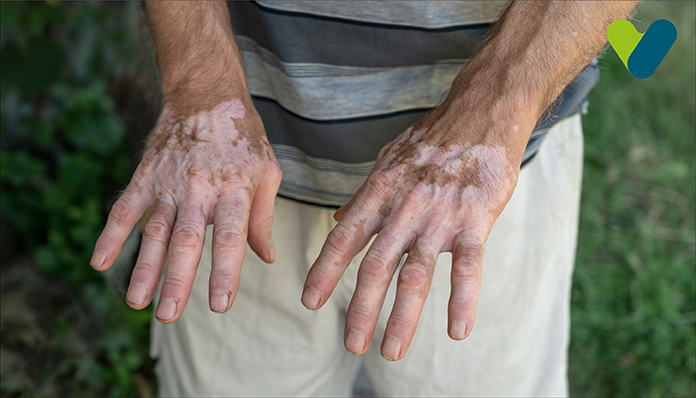Magic Calorie Formula for Weight Loss
Rohit decided on his 30th birthday that he would get his health back together and lose the pounds once and for all. He followed every piece of advice that he read on the internet. He made a list of healthy foods and then religiously consumed them for three months. He cut out alcohol, walked for an hour every day, and drank enough water.Now three months are finished, and he is disappointed to find out that he has lost just 2 kgs. Where did he go wrong? Rohit goes to a dietician to get some answers. And is told that he has been eating way outside his caloric requirements. You see, Rohit did not realize that weight loss is more than just eating healthy. Weight loss also requires calorie counting.
Without keeping the body in a consistent caloric deficit, all the eating healthy only results in minor weight loss, if that. If you, like Rohit, need answers on the 'how many calories I need per day to lose weight' question, read on as discuss the link between calories and weight.
How Many Calories Should You Eat on Average?
This is a difficult question and varies greatly based on age, height, current weight, activity level, and metabolic health of the person. An easy formula is reducing one's calorie intake by 500 calories. Or in other words, eat 500 fewer calories than your body needs to maintain your current weight with this formula. A person will lose a comfortable 0.45 kg of body weight per week. Let's break these calorie requirements further by gender.Calories Requirement For Women
The calorific requirements for all women are not the same and will vary based on their activity level, underlying health conditions, and multiple other factors. In general, however, moderately active women between the ages of 26–50 need to eat about 2,000 calories per day to maintain their weight and 1,500 calories per day to lose 1 pound (0.45 kg) of weight per week.This calculation will change based on the amount of exercise or activity the woman is undergoing. For example, a woman who walks more than 5 kms per day needs to consume 2,200 calories or more daily to maintain her weight and roughly 1,700 calories to lose 0.45 kg of weight per week.
The daily calorific requirements of women also vary by age. Younger women in their 20s have higher calorie requirements for maintaining their weight. In general, they require about 2,200 calories per day to maintain their weight. Women over the age of 50, on the other hand, require fewer calories to maintain their weight- 1,800 calories as an approximate figure.
And finally, pregnant and breastfeeding women will have a higher calorie requirement, which will vary based on how many children they are carrying.
Calories Requirement For Men
Moderately active men between the ages of 26–45 need around 2,500 calories per day to maintain their weight and 2,100 calories per day to lose 0.45 kg per week.Just like women, calorie requirements for men will vary based on their activity level. Given the same example, active men require around 2,800 calories per day to maintain their weight and 2,300–2,500 calories per day to lose 0.45 kg of weight per week.
Younger men aged 19-25 have higher calorie requirements and will need roughly 2,800 calories per day to maintain their weight. This number may go up for active men.
Energy and calorie needs change for older men, much like older women. Active men between the ages of 46–65 need just about 2,400 calories per day. This number will further reduce with more years pass.
Calories Requirement For Children
Children like adults have varying calorie needs that change depending on their age, size, and activity level. Just as not all adults are built the same, neither are children. On average, a toddler requires 1,200–1,400 calories per day, while an active teenager requires roughly 2,000–2,800 calories per day.Teenage boys, on the other hand, require even more calories. While childhood obesity is a real concern and an epidemic in many parts of the world, parents should answer the 'how many calories I need per day to lose weight' question for their kids to focus on instead of exercise. Even overweight kids will lose weight organically with a range of healthy options provided daily, regular physical activity, and time. It is not advisable to stress calorie counting for vulnerable brains.
Effects of Extreme Calorie Restriction
While it is essential to be in a calorie deficit to reduce weight, extreme calorie reduction has consequences. When deciding on the 'how many calories I need per day to lose weight' question, make sure you note your physical health. In fact, if you regularly over reduce calories, you will be in danger of permanently slowing your metabolism down.Studies show that extremely low-calorie diets reduce the number of calories a body burns. This, in turn, will be counterproductive to your weight loss goals. An extremely low-calorie diet is also simply not sustainable.
When deciding on how to answer the 'how many calories I need per day to lose weight' question, remember that a too low number will lead to fatigue and even nutrient deficiencies. In extreme cases, reducing calorie intake extensively can even cause infertility or heart attacks.
Calorie Counting Does Not Mean Starving
While deciding on the 'how many calories I need per day to lose weight' question, it is very easy to adopt toxic eating habits like starving oneself to reduce calories or skipping meals altogether. Reducing calories to an extreme degree may impact your metabolism forever. An imbalanced metabolism will then reduce your calorie requirements leading to your body needing fewer calories than before to maintain and lose weight.Always remember that mental health and physical health go together. To ensure sustainable, long-lasting weight loss, eat calories in a balanced amount. Also, remember to avoid comparisons, focus more on yourself, and questions like 'how many calories I need per day to lose weight' will help you.
A person's calorific requirements depend on a number of interconnected factors like age, sex, height, weight, and even metabolic health. A few simple dietary and lifestyle changes and a reasonable calorie reduction will give you the best results.


